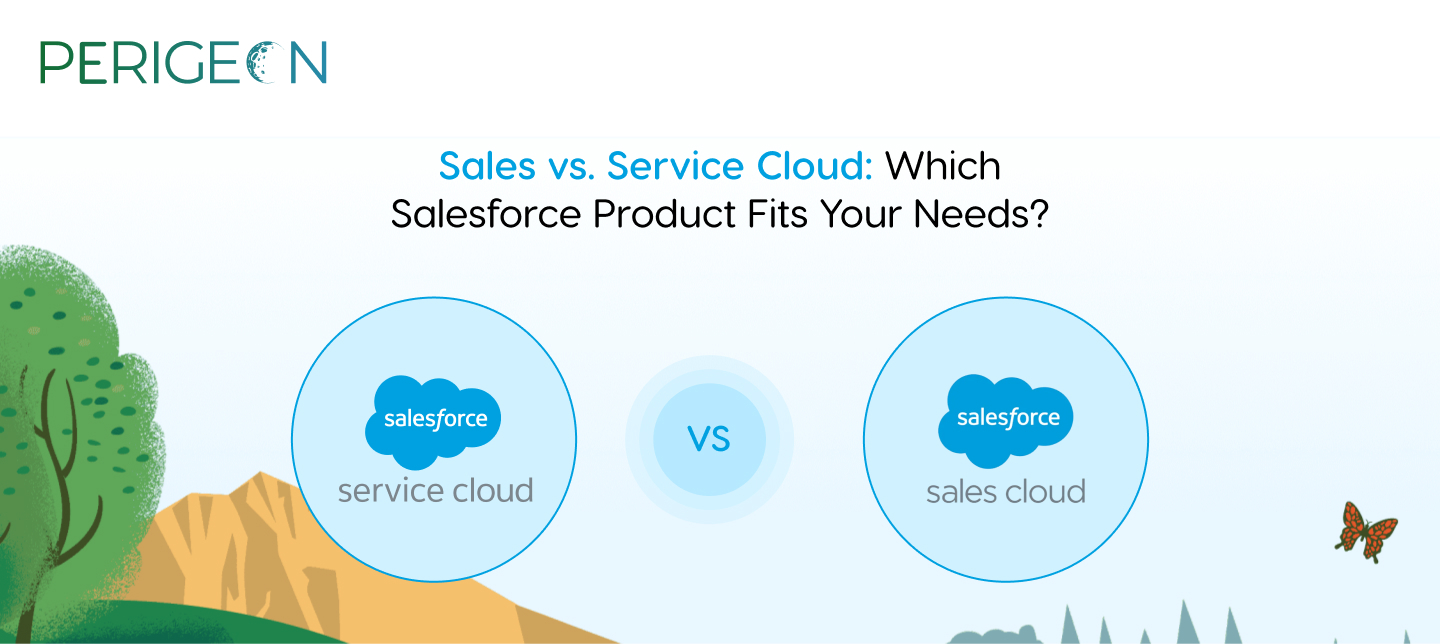Choosing the right Salesforce product can be overwhelming, especially when it comes to Sales Cloud and Service Cloud—two of the most widely used solutions in the Salesforce ecosystem. Both offer powerful features but serve very different business needs.
If you’re evaluating Salesforce Sales Cloud vs. Service Cloud, this guide breaks down the key differences, benefits, and ideal use cases—so you can choose the product that fits your goals.
What is Salesforce Sales Cloud?
Sales Cloud is designed to help businesses drive revenue growth by optimizing the entire sales lifecycle.
Key Features:
- Lead & Opportunity Management: Track prospects and deals with complete visibility.
- Sales Forecasting: Get real-time insights into pipeline health and revenue projections.
- Activity Tracking: Log calls, emails, and meetings in one place.
- AI-Powered Insights (Einstein): Predict best leads and deals with advanced analytics.
- Mobile CRM: Access customer data anytime, anywhere.
Best for: Sales teams, business development reps, and account executives looking to boost productivity and close deals faster.
What is Salesforce Service Cloud?
Service Cloud is built for customer support and service teams to improve customer satisfaction and loyalty.
Key Features:
- Case Management: Track and resolve customer issues seamlessly.
- Omni-Channel Routing: Assign cases automatically to the right agents.
- Knowledge Base: Provide self-service articles and FAQs to customers.
- Field Service Integration: Manage service appointments and technicians.
- AI Chatbots & Automation: Deliver faster resolutions with AI-powered support.
Best for: Customer service, support, and call center teams looking to deliver personalized, efficient support experiences.
Key Differences: Sales Cloud vs. Service Cloud
| Feature/Focus | Sales Cloud ? | Service Cloud ? |
|---|---|---|
| Primary Audience | Sales teams | Service/support teams |
| Goal | Drive revenue growth | Improve customer satisfaction |
| Core Functionality | Lead, opportunity, and pipeline management | Case management, omni-channel support |
| Analytics | Sales forecasting, revenue tracking | Customer satisfaction, service performance |
| AI Use Cases | Predict best deals, upsell opportunities | Automated support, chatbots, case routing |
| Integration Focus | Marketing & ERP systems | Contact centers, knowledge bases, field service |
When to Choose Sales Cloud
- You want to scale your sales pipeline.
- Your business struggles with forecasting and deal tracking.
- You need AI-driven insights to prioritize leads.
When to Choose Service Cloud
- You handle high volumes of customer queries.
- You need multi-channel support (phone, chat, email, social).
- You want to reduce case resolution times and boost CSAT scores.
Can You Use Both Together?
Absolutely. Many businesses deploy Sales Cloud and Service Cloud together to align sales and service functions. This creates a 360° view of the customer, ensuring seamless handoffs from sales to support while improving lifetime value.
Final Thoughts
The choice between Sales Cloud vs. Service Cloud depends on your business priorities:
- If your focus is closing deals faster, choose Sales Cloud.
- If your focus is delivering exceptional customer experiences, choose Service Cloud.
For many growing businesses, combining both is the ultimate way to achieve growth + customer loyalty.
? At Perigeon Software, we help businesses evaluate, implement, and customize Salesforce solutions that align perfectly with their goals.




